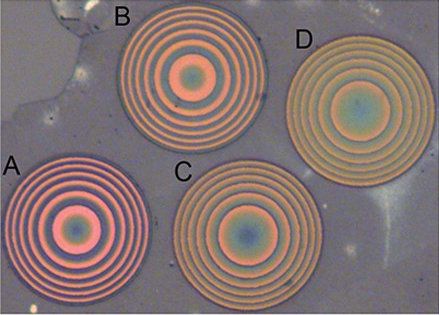Page 9756
Nov 14, 2018
CDC sets task force on determining cause of rise in polio-like illness
Posted by Genevieve Klien in category: futurism
Nov 14, 2018
New methane fuel cell fixes temperature issue
Posted by Genevieve Klien in categories: energy, transportation
The new fuel cell could be a cheaper, more practical way to generate energy to heat homes and eventually run cars.
Nov 14, 2018
CDC: There Are Now 90 Cases of Acute Flaccid Myelitis in the U.S.
Posted by Genevieve Klien in category: biotech/medical
The CDC is investigating another 162 suspected cases of the rare, non-contagious infection that has baffled doctors since 2014.
Nov 14, 2018
Scientists engineer a functional optical lens out of 2-D materials
Posted by Genevieve Klien in category: materials
Nov 14, 2018
Chinese fusion experiment generates an electron temperature of over 100 million degrees
Posted by Genevieve Klien in category: nuclear energy
A team of Chinese researchers has conducted an experiment that is nicknamed the “Chinese artificial sun” using the Experimental Advanced Superconducting Tokamak (EAST) fusion device. The EAST device has been conducting a four-month-long experiment with the goal of seeing how hot the electron temperature inside the fusion device could be. The scientists were able to achieve an electron temperature in the core plasma of over 100 million degrees.
Nov 14, 2018
Cases of mysterious paralyzing condition continue to increase, CDC says
Posted by Genevieve Klien in category: biotech/medical
The number of children being stricken by a mysterious paralyzing condition continues to increase, federal officials say.
At least 252 cases of acute flaccid myelitis, or AFM, have been reported to the Centers for Disease Control and Prevention so far this year from 27 states, including 90 that have been confirmed through Nov. 9, the CDC reported Tuesday.
Most of the cases have occurred among children between the ages of 2 and 8.
Continue reading “Cases of mysterious paralyzing condition continue to increase, CDC says” »
Nov 14, 2018
Double success, says PM Modi after launch of ‘Bahubali’ satellite
Posted by Genevieve Klien in category: futurism
Marking ISRO’s fifth launch for the current year, the communication satellite carries high throughput communication transponders in the Ka and Ku bands which can expand high-speed data transfer in the remote areas of India.
Nov 14, 2018
Tesla confirms Model 3 is getting a CCS plug in Europe, adapter coming for Model S and Model X
Posted by Genevieve Klien in categories: sustainability, transportation
After years of speculation, Tesla finally confirmed today that Model 3 is getting a CCS Combo 2 plug in Europe and an adapter is coming for Model S and Model X.
With growing third-party fast-charging infrastructure in Europe, electric vehicle owners are starting to have many options.
Tesla owners have access to those networks on top of Tesla’s own Supercharger networks, but they had to use an expensive CHAdeMO adapter, which has its own limitations and isn’t yet compatible with Model 3.
Nov 14, 2018
Russia reveals nuclear spaceship that will fly to Mars ‘in very near future’
Posted by Genevieve Klien in categories: futurism, space travel
Russia has revealed a “spacecraft of the future” that could one day put humans on Mars.
Roscosmos showed off concept designs for the sci-fi spacecraft – but failed to say exactly when it would launch.
The spaceship is currently in development at Russia’s Keldysh Research Centre, which is racing to create the nuclear propulsion engine.
Continue reading “Russia reveals nuclear spaceship that will fly to Mars ‘in very near future’” »

















